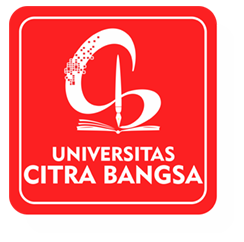PENGARUH MODEL PEMBELAJARAN TALKING STICK TERHADAP PRESTASI BELAJAR KELAS V MATA PELAJARAN IPS DI SEKOLAH DASAR INPRES BERTINGKAT OEBOBO 2 KOTA KUPANG
Keywords:
talking stick, hasil belajar, ceramah.Abstract
ABSTRAK
Penelitian ini dilatar belakangi hasil pra observasi dan wawancara di SD Inpres Bertingkat Oebobo 2 Kota Kupang, terdapat 17 siswa atau 77,27% yang belum mencapai KKM dan pada kelas VB adalah 68 yang terdapat 15 siswa atau 68,18% yang belum mencapai KKM. Hal ini menunjukan bahwa prestasi belajar IPS siswa Kelas V SD Inpres Bertingkat Oebobo 2 Kupang masih rendah. Selain itu pada saat proses pembelajaran berlangsung guru cenderung menggunakan metode ceramah. Penelitian ini bertujuan Untuk mengetahui pengaruh penggunaan model pembelajaran Talking Stick terhadap prestasi belajar siswa kelas V pada mata pelajaran IPS. Metode penelitian ini menggunakan Metode yang digunakan adalah metode Quasi Eksperimental Desainyang digunakan adalah The Nonequivalent Control Group Desigen. Yang mempehitungkan skor post test. Hasil analisis data menunjukan, nilai rata-rata kelas eksperimen sebesar 81,36 dan nilai rata-rata kelas kontrol sebesar 64,30 dengan pengujian hipotesis menunjukkan bahwa nilai sig. (2-tailed) 0,000 < 0,05 maka tolak H0 sehingga disimpulkan bahwa terdapat pengaruh yang signifikan model pembelajaran Talking Stick terhadap prestasi belajar siswa kelas V pada mata pelajaran IPS di SD Inpres Bertingkat Oebobo 2 Kota Kupang.
Downloads
Published
Issue
Section
License
Every works in SPASI is licensed under a Creative Commons Attribution-ShareAlike 4.0 International License.
Authors who publish with this journal agree to the following terms:
- Authors retain copyright and grant the journal right of first publication with the work simultaneously licensed under a Creative Commons Attribution License that allows others to share the work with an acknowledgment of the work's authorship and initial publication in this journal.
- Authors are able to enter into separate, additional contractual arrangements for the non-exclusive distribution of the journal's published version of the work (e.g., post it to an institutional repository or publish it in a book), with an acknowledgment of its initial publication in this journal.
- Authors are permitted and encouraged to post their work online (e.g., in institutional repositories or on their website) prior to and during the submission process, as it can lead to productive exchanges, as well as earlier and greater citation of published work (See The Effect of Open Access).




